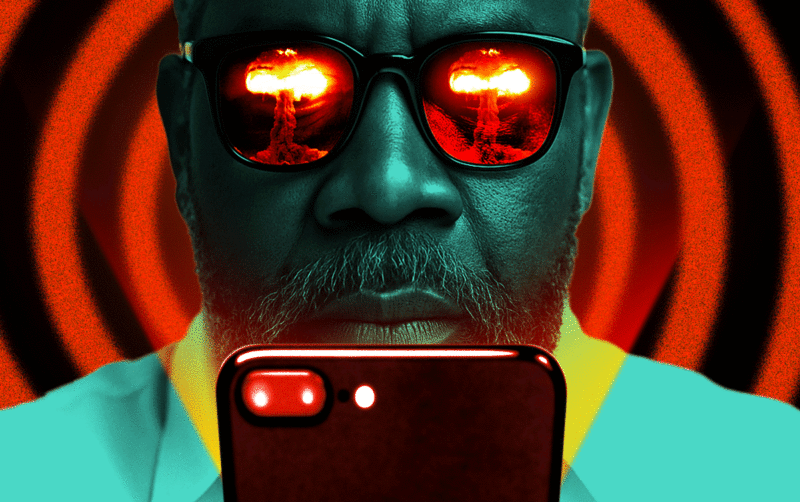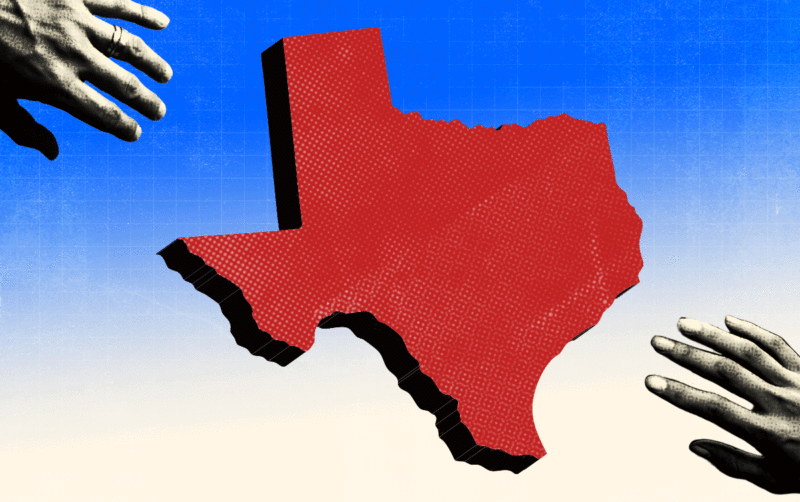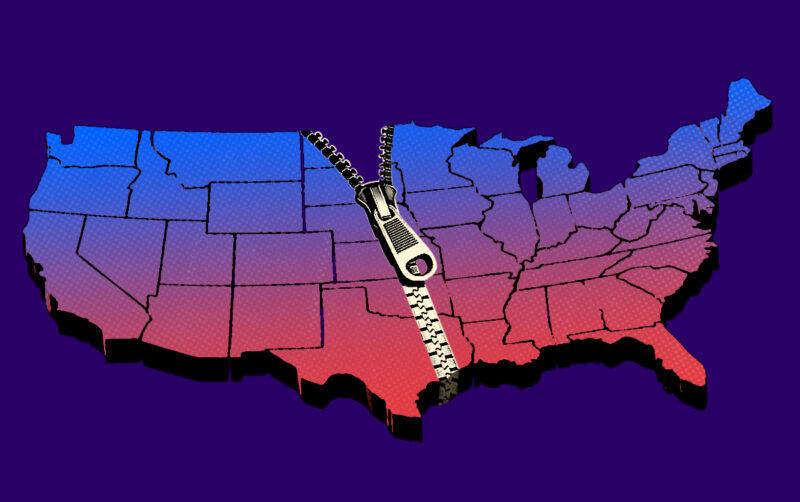Editorial
DEBUNKED: 10 Myths Keeping Us Divided
A lot of what’s dividing us isn’t just politics—it’s myths. Myths like “the other side is misinformed,” or “we’re more divided than ever.” They sound like hard truths, especially when we hear them echoed constantly on social media, in headlines, or around the dinner table. But most of them fall apart the second you zoom out, look at the data, or talk to someone outside your bubble. These myths don’t just distort how we see each other. They keep us stuck, suspicious, and resigned. And if we want to move forward, we’ve got to challenge the false narratives that tell us we can’t.
1. “We’re More Divided Than Ever.”
We hear this all the time. But history tells a different story. We’ve faced deeper and deadlier divisions before: a Civil War that tore the nation apart, families split over the Vietnam War, and mass protests during the civil rights movement that saw the assassination of leaders like Martin Luther King Jr. What we’re living through now is serious. Affective polarization (the tendency of partisans to view members of the opposing party negatively and those in their own party positively) is at an all-time high. But amidst this polarization, there are many areas where majorities of Democrats and Republicans agree, even on issues as divisive as abortion and gun control. So no, we’re not holding hands and singing Kumbaya. But we’ve survived worse, and we can find our way forward again.
2. “If You Change Your Mind, You’re Weak.”
Changing your opinion isn’t a sign of weakness. It’s a hallmark of intellectual strength. Research shows that “intellectual humility”—the ability to recognize our knowledge has limits—is tied to better decision-making, less polarization, and a stronger resistance to misinformation. Moreover, psychological flexibility, the capacity to adapt to new information while staying true to one’s core values, is linked with greater well‑being and effective problem-solving. In short: evolving your views doesn’t make you spineless. It makes you thoughtful, engaged, and resilient—the traits democracy truly needs.
3. “The Other Side is Immoral.”
A lot of people think the “other side” doesn’t just disagree—they’re immoral or even dangerous. But when researchers asked Democrats and Republicans how they felt about serious wrongdoings like tax fraud, animal abuse, or cheating on a spouse, both sides overwhelmingly disapproved. The real kicker? When asked to guess how many opponents would approve of those same things, people guessed five times higher than reality. That means we’re walking around assuming the other side is fine with awful behavior, when in truth, it’s almost no one. Most Americans actually share a strong moral compass. The problem isn’t values—it’s how distorted our view of each other has become.
4. “Red Areas Are Backward and Intolerant, Blue Areas Are Woke.”
Political geography isn’t binary. It’s a patchwork. A new study found that nearly 40% of U.S. cities don’t fit the stereotype—that red areas are more biased and blue areas are more tolerant. For instance, red cities like Knoxville and Spokane showed lower-than-expected levels of implicit racial bias. Meanwhile, blue strongholds like New York City and Chicago showed higher-than-expected levels of implicit racial bias. The real story isn’t red state vs. blue state. It’s that values, hopes, and frustrations cut across ZIP codes.
5. “Talking Politics Always Ends in a Fight.”
Only if you treat it like a debate stage. Researchers at Stanford found that conversations rooted in curiosity rather than competition were more likely to reduce polarization. It turns out, asking, “What makes you feel that way?” is a better strategy than loading up your rebuttal cannon.
6. “Experts Can’t Be Trusted.”
We get it. Experts have made mistakes. But tossing out all expertise makes us susceptible to bad actors and grifters. Expertise is rarely perfect, but it’s still better than chaos. Studies confirm that expert consensus remains far more accurate than random guessing or individual opinions. If we throw out all experts, we’ll be left with empty arguments and no one left to turn to when real knowledge is needed. What we need isn’t blind trust; it’s transparency and accountability. We should demand both evidence and honesty—and yes, experts should be willing to say, “I don’t know” more often.
7. “Young People Don’t Care About the Country” / “Older Generations Are Holding Us Back.”
False dichotomy. Gen Z is voting in record numbers. A 2022 U.S. Census study found that Gen Z’s voter turnout in the midterms surpassed Millennials and Gen X when they were the same age cohort, marking the third-highest youth turnout in 50 years. Meanwhile, many older Americans are leading nonprofits, running for office, and mentoring the next generation. In fact, baby boomers make up the biggest group of informal volunteers (volunteering on your own, without ties to an organization) in the country. This isn’t a tug-of-war. It’s a relay race.
8. “The Other Side is Misinformed.”
A lot of us walk around thinking we can spot misinformation just fine. But everyone else? Totally fooled. That’s a common bias called the “third-person effect,” and it basically means we assume other people are way more gullible than we are. Studies show most folks think they’re good at spotting fake news, but don’t trust others to do the same. But in reality, the “other side” isn’t falling for everything—we just tend to overestimate how smart we are and underestimate how thoughtful others might be.
9. “Media Can’t Be Trusted at All”
It’s true that some media outlets spin stories or focus on outrage. But the idea that all media is untrustworthy just doesn’t hold up. A 2019 study tasked professional fact-checkers with rating the accuracy of 60 news sources ranging from mainstream to hyperpartisan to blatant “fake news.” They found that mainstream media outlets such as Associated Press, Reuters, and The Wall Street Journal consistently scored the highest accuracy ratings. The key isn’t canceling all media. It’s being a smarter media consumer. Getting your news from a range of credible sources, checking primary documents when possible, and being aware of bias (including your own) go a long way. Blanket distrust doesn’t make you savvy—it makes you vulnerable to misinformation disguised as “truth they don’t want you to know.”
10. “Compromise Is Selling Out.”
Nope. Compromise is how roads get paved, budgets get passed, and lives get better. The most important pieces of legislation throughout American history required give and take from both sides of the aisle. To break the filibuster and pass the Civil Rights Act of 1964, Republicans voted to end segregation despite fears the act would drastically expand the power of the federal government. To pass the Bipartisan Infrastructure Law in 2021, Democrats agreed to drop spending on clean energy, childcare, and healthcare from the bill. Democracy isn’t about winning every point—it’s about making progress. Holding firm to your values is fine. Just don’t mistake gridlock for principle.
We’re Better Than the Myths
Myths are comforting. They offer simple answers, clear villains, and a sense of moral high ground. But they also flatten real people into caricatures — and that’s a surefire way to stall progress. The truth is, Americans are more nuanced, more reasonable, and more aligned than these myths suggest. We don’t need to agree on everything to make things better. But we do need to start questioning the stories that keep us divided — and make space for the ones that bring us back together.
—Alex Buscemi (abuscemi@buildersmovement.org)
Keep Reading

Doomscroll Detox: 6 Steps to Take Back Your Sanity

DEBUNKED: 4 Myths Keeping Texas Divided—and One Truth to Inspire You
